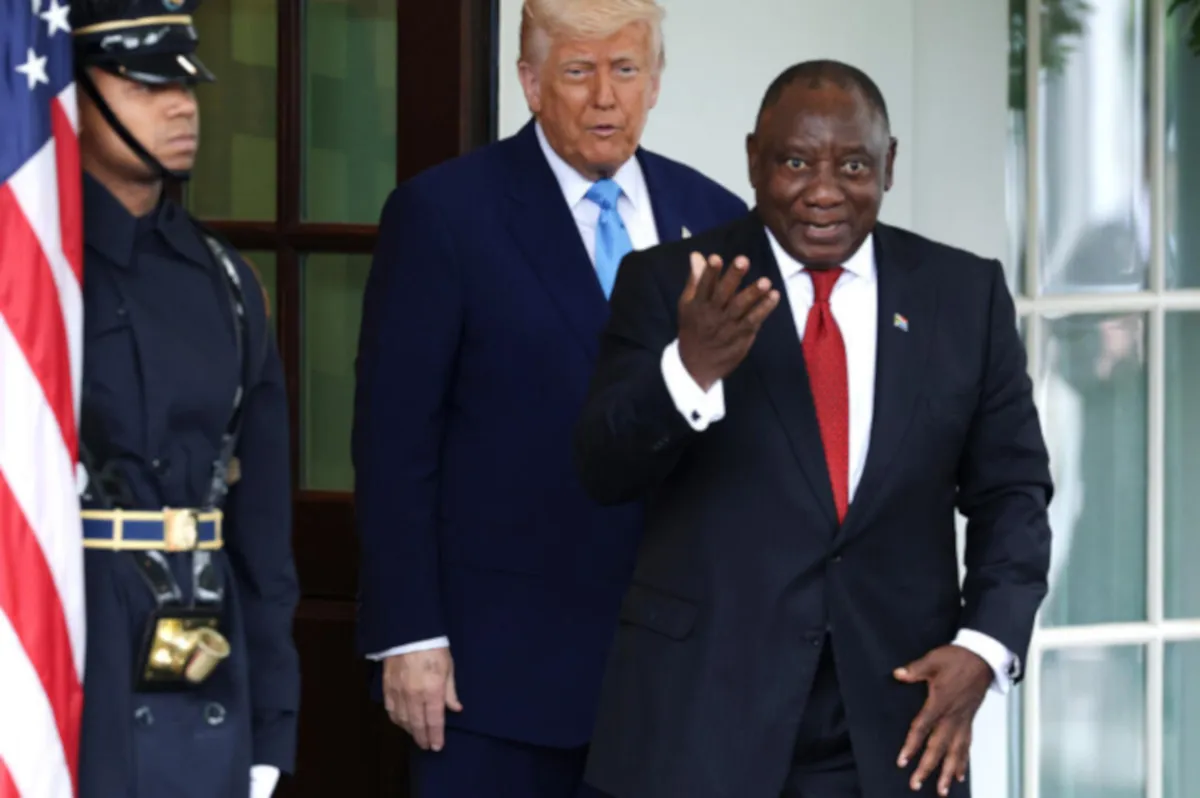
Trump’s trade tariffs push South Africa to strengthen ties with China
South Africa is actively exploring new markets in Africa and Asia while it negotiates with the United States to avert looming 30% trade tariffs.

South Africa is actively exploring new markets in Africa and Asia as it negotiates with the United States to avoid a looming 30% trade tariff that officials say could cost around 30,000 jobs.
On Monday, government ministers voiced their frustration with the U.S., arguing that South African exports pose no threat to American industries and make up only a small portion of the country’s total imports.
The 30% tariff, sub-Saharan Africa’s highest, comes amid strained diplomatic relations between South Africa and the U.S., driven by disagreements over various domestic and international policies.
Trading partner
“Our foremost priority is protecting our export industries,” President Cyril Ramaphosa said in his weekly newsletter.
“We will continue to engage the US in an attempt to preserve market access for our products. We must also accelerate the diversification of our export markets, particularly by deepening intra-African trade,” he said.
The United States ranks as South Africa’s second-largest trading partner after China.
Officials said the new tariffs will primarily impact South Africa’s agriculture, automotive, and textile sectors, although 35% of exports, such as copper, pharmaceuticals, semiconductors, lumber products, and certain critical minerals, will remain exempt.
In a statement, Foreign Minister Ronald Lamola noted that the effect on economic growth will depend on factors like South Africa’s ability to secure alternative markets. He pointed to forecasts suggesting the tariffs could reduce growth by 0.2%, a significant blow given that first-quarter growth stood at just 0.1%.
The South African Reserve Bank warned last week that the U.S. tariffs could cost up to 100 000 jobs, in a country already facing an unemployment rate above 30%.
But trade department director general Simphiwe Hamilton told reporters on Monday their estimate was that approximately 30 000 jobs could be affected.
South Africa ‘no threat’
In a bid to avert the high tariff, South Africa has offered to import US liquefied natural gas and some US agricultural products, as well as invest in its mining and metals-recycling industries.
Pretoria is focused on negotiations for a new deal despite the “very extreme provocation” on the part of the United States, Lamola told reporters.
The 30% tariff was “inscrutable” considering that imports from South Africa only represented 0.25% of total US imports, the minister said.
“Moreover, South Africa poses no trade threat to the US economy nor its national security,” he said, arguing the imports supported US industry and did not compete with it.
An example was that South African agriculture exports were “counter-seasonal” and so filled gaps in the US market without replacing domestic produce, he said.
Pretoria’s plummeting ties with Washington and failure to reach a new trade deal has been heavily criticised at home, including by some of the parties in the coalition government who have accused Ramaphosa and his team of diplomatic missteps.
Tensions between South Africa and the United States have deepened, fuelled by multiple disputes—including South Africa’s genocide case against Israel at the International Court of Justice and the expulsion of Pretoria’s ambassador in March after he criticised Donald Trump’s Make America Great Again (MAGA) movement.
In his weekly newsletter, President Cyril Ramaphosa announced that the government has set up a support desk to assist exporters and producers in finding new markets across Africa, Asia, and the Middle East.
He also confirmed that South Africa will continue advancing plans for a continent-wide African free-trade area.
Meanwhile, the United States last week imposed 15% tariffs on exports from several sub-Saharan countries, including Lesotho, a small export-driven mountain kingdom that had initially faced a 50% tariff threat.
